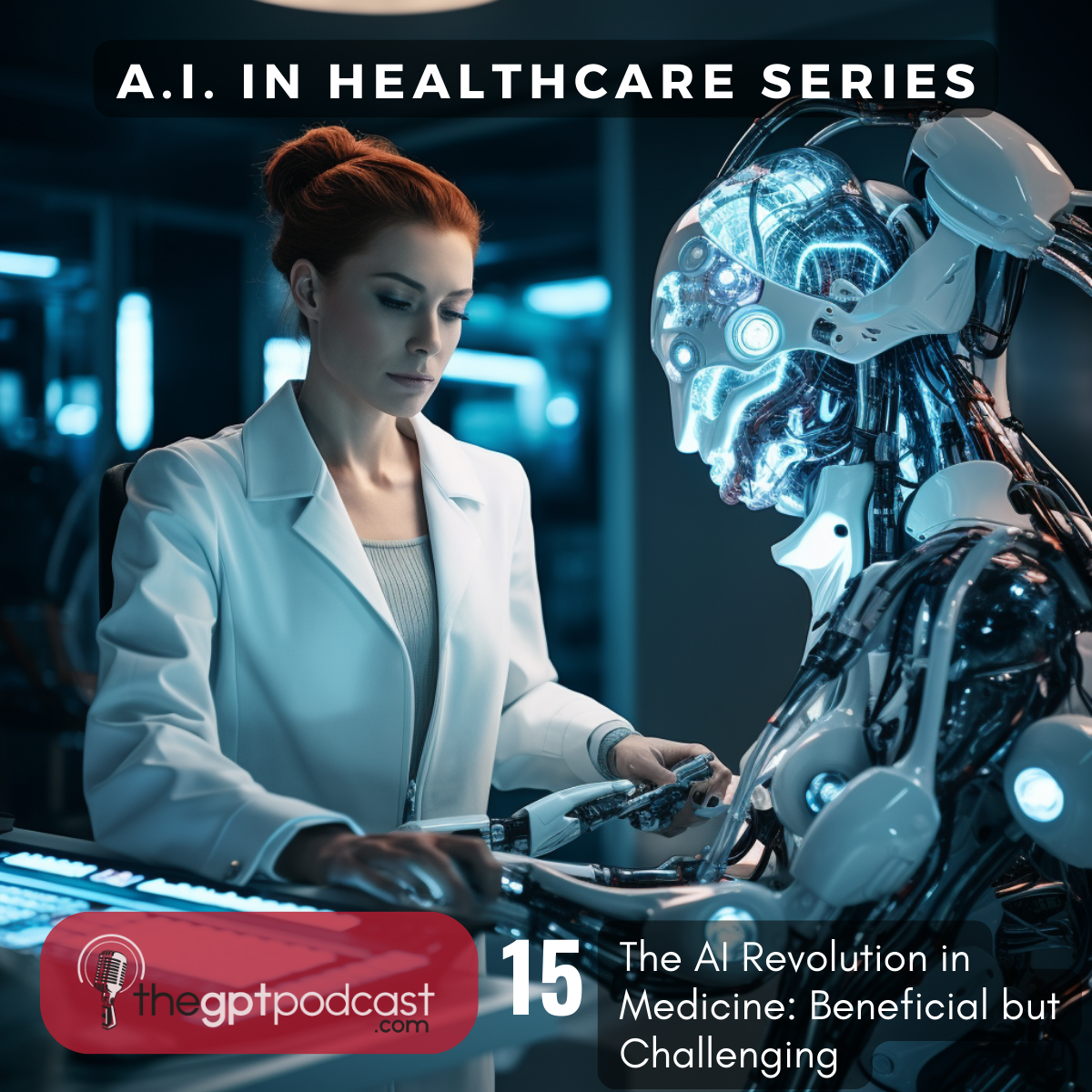The AI Revolution in Medicine: Beneficial but Challenging
🩺🖥️ AI's role in healthcare. Despite the positive impact AI could have on diagnosis, treatment planning, efficiency, and patient outcomes, a study found most doctors 🩺 feel unprepared due to lack of knowledge and training.

Welcome to our latest Podcast in our AI in Healthcare series where we explore the prominent and increasing role of AI in the field of medicine. As discussed in our recent podcast, while AI's potential in healthcare is vast, there are concerns about physicians' preparedness for this transformation.
A watershed study from the University of Maryland School of Medicine underscored this concern. It revealed that many doctors feel less than adequately equipped to navigate the changing medical landscape shaped by AI. Despite this, an overwhelming majority, 82%, were optimistic about AI's implications for the healthcare sector, including its potential to enhance quality of care and patient outcomes.
So, the question arises - why do physicians feel unprepared if they believe in the promise of AI? The primary reason cited boils down to gaps in knowledge and training. The study found that only 18% of doctors believed they possessed the necessary knowledge to effectively use AI in their practice. Moreover, a shockingly small percentage, just 15%, had undergone formal AI training.
Beyond gaps in knowledge, the study highlighted other challenges such as trust and security. Physicians expressed anxieties over issues such as ethical considerations, legal liability, data privacy, and human-AI interaction. All very legitimate concerns in new territories such as this, which need to be addressed to instill confidence in AI applications.
To tackle these challenges, the study authors recommended that AI education should become a fundamental part of medical training. This would allow aspiring physicians and established practitioners to better understand how to navigate and capitalize on the emergence of AI in healthcare. Moreover, they suggested that collaboration with various stakeholders including patients, policymakers, researchers, and industry partners is key to ensure that AI can be employed safely, ethically, and effectively.
Physicians have specifically cited the potential influence of AI on diagnosis, decision support, research, education, and administration. These highlights underscore the need for a major rethinking in medical education and practice to keep pace with the rapidly advancing field of AI.
In conclusion, although challenges lie ahead in the implementation of AI in healthcare, the transition promises an optimistic and progressive future for medicine. The road may seem bumpy, but with the right education, understanding, and collaboration, the healthcare community can navigate these shifts with confidence. As the AI revolution continues to take hold, we must prepare with both optimism and resilience to maximize its potential benefits.
Thank you for tuning in to this discussion on the transforming landscape of healthcare. We hope it provided useful insights into the role and potential of AI in medicine. Stay tuned for more intriguing discussions in our AI in Healthcare series!

